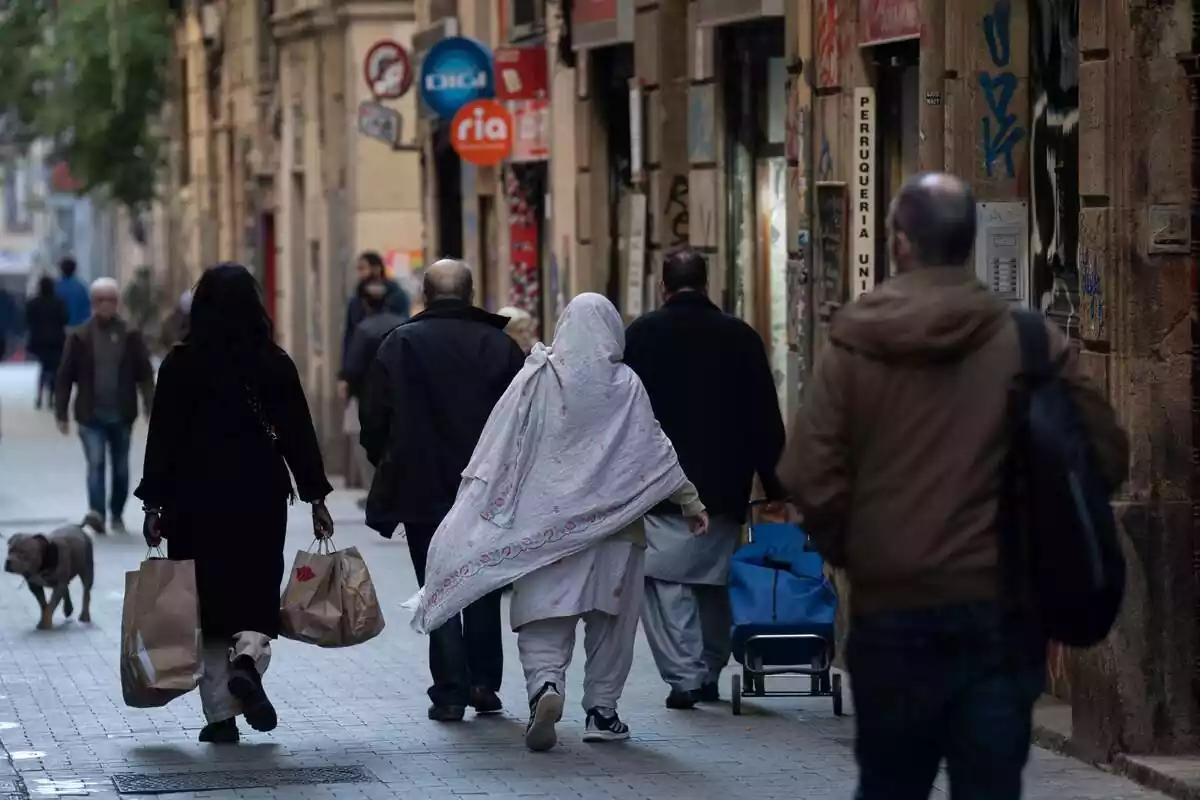
The government wants to regularize 200,000 immigrants in Catalonia before the elections.
PSOE and PSC are already focused on the upcoming regional elections: Catalonia is a key piece for Sánchez
Yesterday, Tuesday, May 20, a new Immigration Regulation came into effect that will change the situation of thousands of immigrants in Spain. This reform seeks to regularize almost one million people in three years. In Catalonia, it is expected that 200,000 immigrants will obtain legal residency before the regional elections of 2027.
The main (and declared) objective of the Government is to simplify procedures and eliminate duplications in the regularization processes. In this regard, requirements have been relaxed and the minimum residency time to access legalization has been reduced from three to two years. Additionally, the concept of "arraigo" has been expanded, dividing it into five different categories.
Among the new features is also the improvement in family reunification. Now, children up to 26 years old and partners not formally registered can benefit from the new regulation. The legislative intention is to facilitate integration and ensure stability for immigrant families.

Catalonia in Sánchez's spotlight
This situation particularly concerns Catalonia, which concentrates a large part of the foreign population in an irregular situation. According to official data accessed by Vozpopuli, during 2024, 290,000 applications were solved in Catalonia. So far in 2025, 54,000 initial files have already been solved, and the process is expected to accelerate.
To facilitate this regularization, the Government has increased resources in the Immigration offices in Catalonia by 30% to 40%. This increase aims to reduce bureaucracy and speed up the processing of applications. Thus, it is expected to meet the high demand for regularizations before the upcoming elections.
As has been customary, the Executive highlights that immigration is a key factor for the economic and social sustainability of the country. The aging population makes the incorporation of foreign workers necessary. Additionally, it is considered that this policy benefits the pension system and public services. As explained in E-Notícies, this model generates good macro data, but poor micro data in terms of per capita income.

However, the measure also has a clear political dimension. It is evident that, with this measure, the Government aims to consolidate the immigrant vote, which is mostly favorable to the Socialist Party. In fact, this demographic sector could decisively influence the electoral results in Catalonia, which is now a key piece in the 'sanchista' strategy.
Parallel to this, the Government has maneuvered to try to mitigate the main risk of its immigration policy. We refer to the rise of identity formations opposed to immigration, which, in Catalonia, are concentrated in Aliança Catalana and Vox. This explains a double move that the PSOE has made with the "processisme" and, in particular, with Junts.

The first is to initiate a process of transferring immigration competencies to Catalonia. This allows Sánchez to give air to his partner Junts, which has a serious problem with the pressure from Aliança Catalana. At the same time, and while the negotiation and transfer process lasts, Sánchez ensures the support of Junts within 'Frankenstein'.
The second has been to exclude Catalonia from the distribution of 'menas' because it has been shown that 'menas' represent a political bill for the parties, especially at the municipal level. With this concession, the PSOE once again allows Junts to take credit for this measure to claim an achievement before its electorate. It is thus evident that the parties are already oriented toward 2027.
More posts: